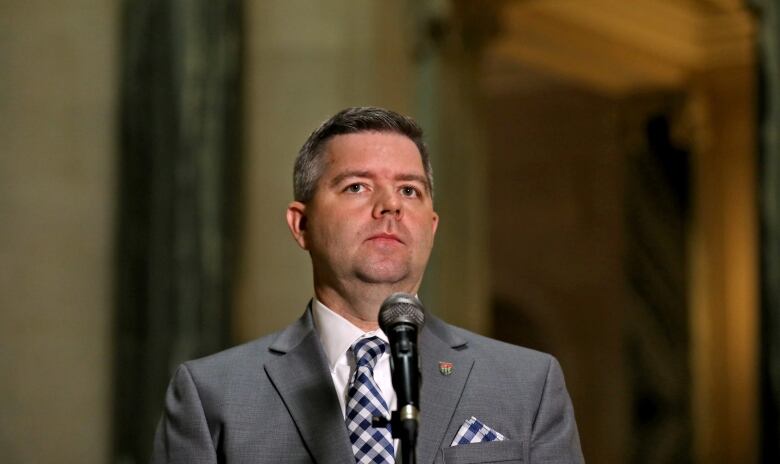Sask. seeks the same autonomy on immigration that Quebec already enjoys
'We know our province's needs … better than the government of Canada': Immigration Minister Jeremy Harrison

Saskatchewan is pushing for Quebec-style autonomy over immigration with a proposal it's calling the Saskatchewan Immigration Accord.
Jeremy Harrison, the province's immigration minister, met with federal and provincial immigration ministers earlier this week to put forward "a detailed proposal" that would give Saskatchewan authority over immigration similar to what has already been guaranteed to Quebec.
The province said Thursday that the accord would give Saskatchewan "sole authority" to nominate newcomers moving to the province, including control over the family class of immigration.
The plan includes "a transfer of federal resources for settlement services to the province of Saskatchewan" and a guaranteed provincial allocation of nominees each year that would be proportionate to the province's population compared to Canada.
"Saskatchewan requires more autonomy and flexibility over immigration in order to meet its economic needs and address gaps in the labour market," Harrison said in a news release Friday.
The federal government should focus on reducing application processing times, "and let the provinces select immigrants and ensure their effective settlement," he said.

The Quebec Accord grants that province the sole responsibility for the selection of economic immigrants, while Canada bears responsibility for admission based on national security.
While Quebec manages economic immigration to the province — a power other provinces and territories in Canada do not have — the federal government is responsible for family reunification and the admission of refugees.
"When it comes to immigration Saskatchewan expects the same deal as Quebec. Immigration is a key component of our government's plan to grow the province to 1.4 million people and create an additional 100,000 jobs by 2030," Harrison said.
"Provincial governments are in the best position to respond to local labour market needs with new Canadians. The provinces should not be limited by economic categories or caps on provincial nominee programs set by the federal government."
Speaking to journalists about health-care staff shortages, NDP Leader Carla Beck said immigration could be a part of the solution.
"They seem to want to emulate Quebec. We want to have very clear criteria. I don't think this is something that should be hidden from the people of Saskatchewan," the Opposition leader said.
"That criteria should be fair to people who are looking to relocate here to Saskatchewan. It's on any government to show that our immigration system is fair and doesn't contain any discrimination."
The Saskatchewan Party government expects to exceed its current cap of 6,000 under the province's immigrant nominee program this year, and seeks a proportionate share of national immigration at a "minimum 13,000 positions allocated to the province in 2022."
The transfer in settlement funding, according to the release, would translate to approximately $42 million transferred to the province annually.
Harrison said he has "long maintained that the transfer of these authorities makes sense from the perspective of the provincial and federal government — and most significantly — for new immigrants coming to Saskatchewan."
"Simply put — we know our province's needs and labour markets better than the government of Canada," his statement said.
Giving the province authority over selecting immigrants would let the federal government "focus on addressing the outrageous processing times for admissions that are causing such issues for hundreds of thousands of potential new Canadians," Harrison said.

